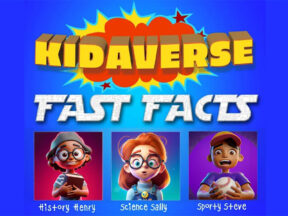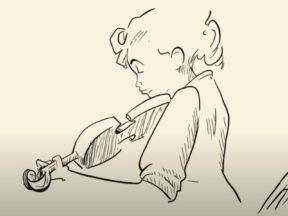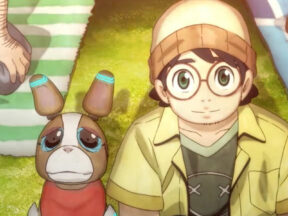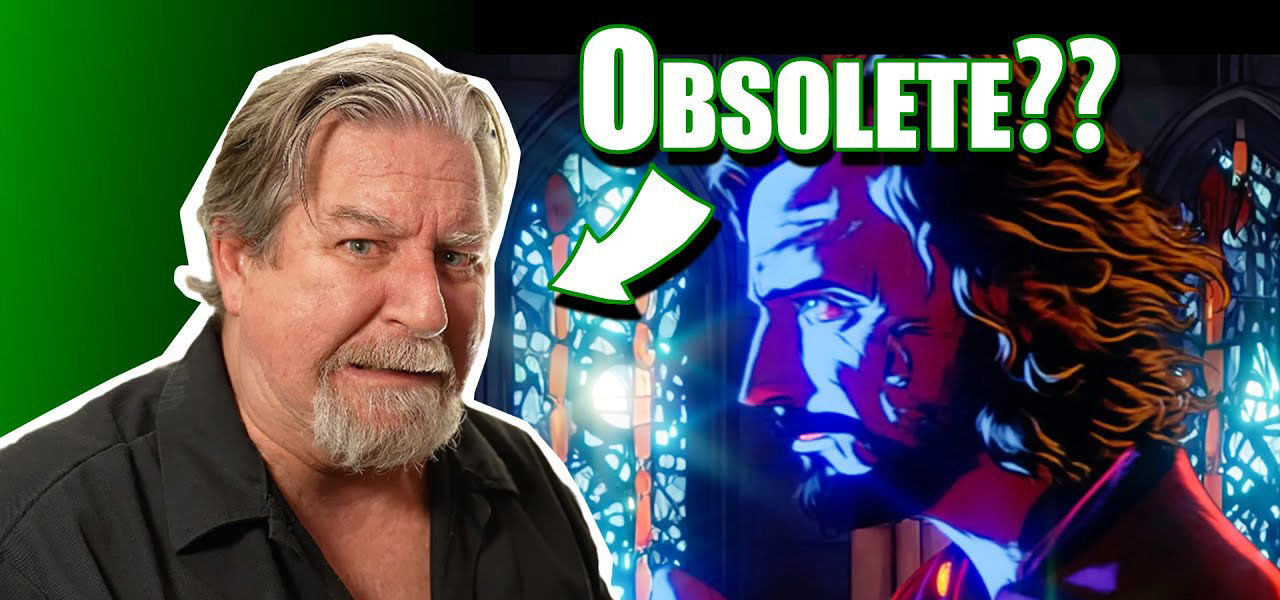
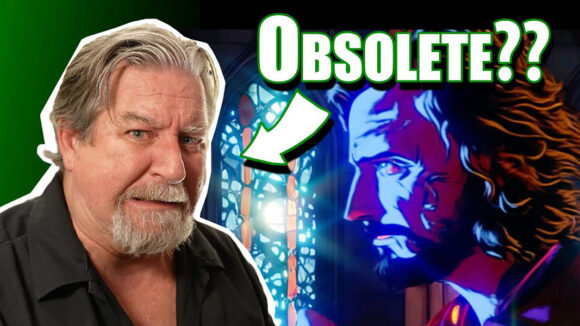
Disney Vet Aaron Blaise Answers The Question: “Is AI Animation Going To Put Me Out Of A Job?”
Former Disney supervising animator Aaron Blaise, who also directed the studio’s feature Brother Bear, took to his Youtube channel recently to address the recent rise of AI-generated images and the use of artificial intelligence in animation. His thesis question, “Did I just get put out of a job?”
At the risk of burying the lede, Blaise’s answer is an unequivocal no. In fact, he’s excited by the opportunities that AI can bring to the animation process. That excitement does not come without reservations, however.
The first half of Blaise’s video is spent reacting to a behind-the-scenes video for the recent viral short Anime Rock, Paper, Scissors, produced by Corridor Digital. There are some incredible and specific insights in his review, but we were more intrigued by the larger questions that Blaise addressed in the second half of his video.
While Blaise was impressed by what Corridor was able to produce, one concession that he was not willing to make was that the short was animated using AI. According to him, the software used by Corridor didn’t actually do any animation. What it did was put a sophisticated, custom-made filter over live-action shots, a processing effect that can be accomplished even without artificial intelligence.
I think it’s a misnomer that they’re calling this AI animation. It’s really not because they’re not really animating anything. They’re shooting in live-action and basically creating a filter over live action and creating the animated look in that way. It’s visual effects. If you look at Avatar it’s basically the same thing. And if you go way back to the beginning, you can go back to Snow White and even earlier they were shooting live action back then, drawing over the top of it, and creating a look there. This is just a big fancy version of that.
After reviewing the short, Blaise addressed the broader topic of AI software being trained on artists’ work without their knowledge or consent. Although he’s a fan of what people are creating with AI software, Blaise isn’t happy about how some programs are trained. “There is no way that someone’s art should be used to train AI to create something else, basically riding on the back of their sweat,” he explains in the video.
That said, he likes the idea of artists being able to train AI software with their own work to help with the animation process:
That could help me do shadows, different aspects of lighting, I don’t think it’s ever gonna replace animation. Do I think AI will be able to do animation down the road? I don’t know. I didn’t think we’d ever be drawing on computer screens 40 years ago.
If AI software does become capable of automating the entire animation process in the future, and not just adding a filter to live-action footage, Blaise is still not overly concerned.
I don’t think it’s gonna replace animators. In the same way that cameras didn’t replace painters, there’s always gonna be a place for people doing this craft, this art, and doing it in a style that they want. I think it’s gonna broaden, if anything, the style… Any time technology has ever come along in the entertainment industry, the animation industry, the expressiveness and the ability to create new ideas have exploded. As an end result, it has created more jobs and budgets have gone up. If you look at budgets today compared to the 1990s they’re double.
So what, according to Blaise, is the most significant threat to the animation industry today? It’s the same as it ever was:
The biggest threat is an age-old threat, it’s bad stories and bad management. That’s what’s gonna get rid of jobs. If you’re putting out consistently bad movies under bad management, then those jobs are gonna go away because no one is gonna go see them.
Pictured at top: Aaron Blaise watching Anime Rock, Paper, Scissors

.png)

